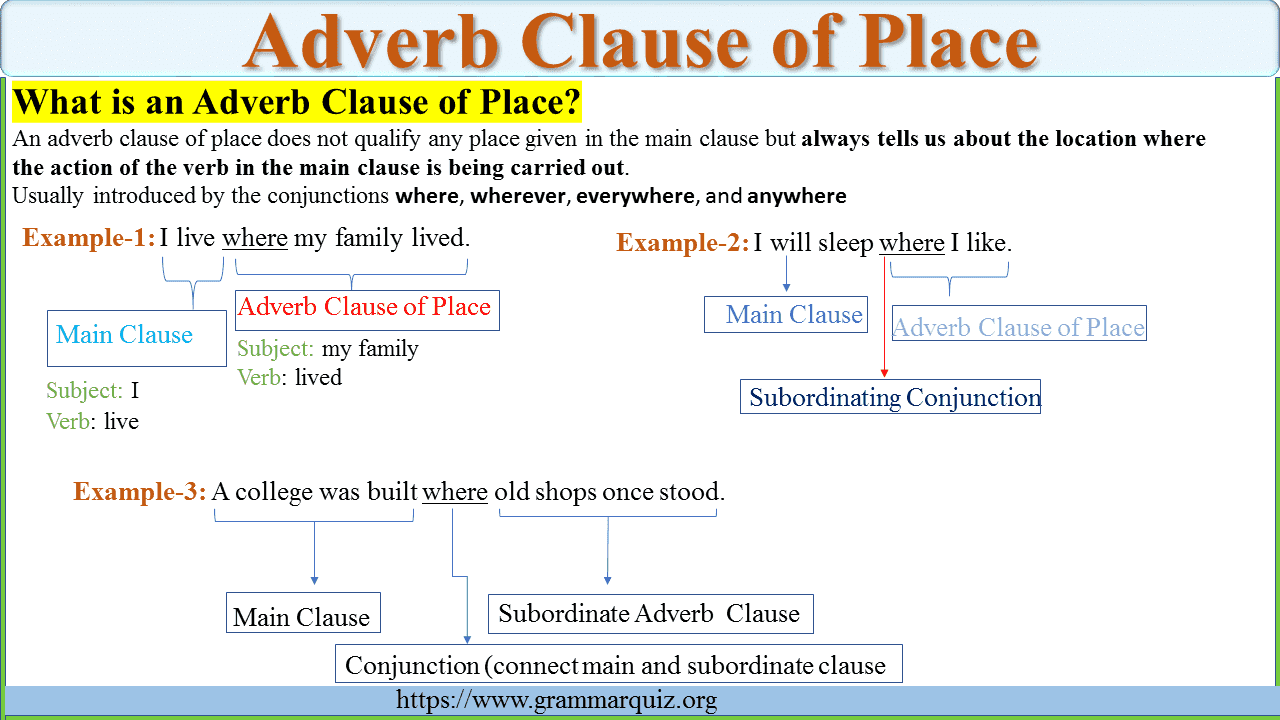
As the name suggests, an adverb clause of place gives information about an event’s location in the main clause. The common conjunctions we use to introduce this clause are where, wherever, everywhere, and anywhere.
Look at this example.
The flood destroyed the shelter where the fishers were storing fish.
Finite verbs: destroyed, were storing
Main clause: The flood destroyed the shelter
Conjunction: where (means in the place that)
Subordinate clause: the fishers were storing fish.
Adverbial clause of place, modifying the verb ‘destroyed’ in the main clause.
Adverb Clause of Place Examples
The following are examples of an adverbial clause of place; it is written in bold in each sentence for easy identification.
- I bring my headphone everywhere I go.
- He went wherever he wanted to go.
- Bad luck follows me wherever I go.
- I will live where I find work and peace.
- I don’t know where the meeting will take place.
- He invests his money anywhere he deems suitable.
- You can sit anywhere you like.
- He must put the watch back where she found it.
- Wherever I go, she follows me.
- Where there is drink, there is danger.
- You can stay it wherever you like.
- Go quickly whence you came. (whence use in older English)
Adverb Phrase of Place vs. Clause of Place
All adverb clauses, whether they are related to place or any other type of clause composed of a subject and a predicate. On the other hand, adverb phrases contain neither a subject nor a predicate. In each pair of sentences below, the adverb phrase tells us about a place turns into an adverb clause in the second sentence.
- Phrase of Place: The car stopped at the right place.
- Clause of Place: The car stopped where it should.
- Phrase of Place: I know the place of her hidden bag.
- Clause of Place: I know where he hides the bag.
- Phrase of Place: They are back at the starting point.
- Clause of Place: They are back where we started.